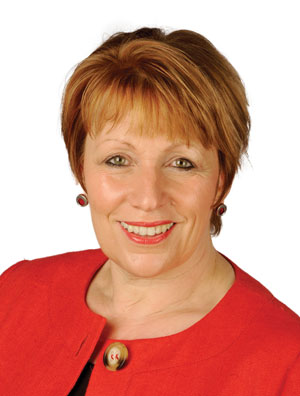Frank le Duc: The Vote

Mental health services for children and teenagers are coming under growing scrutiny with MPs holding an inquiry
More than 1,600 children and young people were seen by a service known as CAMHS (Children and Adolescent Mental Health Services) in Brighton and Hove last year. The children are some of our most vulnerable. Some have been scarred by abuse and neglect. Others have conditions such as autism and anxiety or mood disorders which make daily life more complex than it is for most of us.
There are growing concerns about CAMHS and the way that it cares for youngsters with mental health issues, behavioural difficulties and emotional problems. Nationally the NHS is reviewing the way that some services are provided after it was reported that too many children were being treated too far from home. One Sussex patient was sent 275 miles to the Manchester area because there were no beds closer to home.
And earlier this year a committee of MPs – the House of Commons Health Select Committee – announced that it would hold an inquiry to try to figure out how to improve matters. It was responding to concerns expressed by the government’s chief medical officer Professor Dame Sally Davies. She is not known for irresponsible scaremongering.
Locally CAMHS has been the subject of criticism by parents and carers. Brighton and Hove City Council set up a scrutiny panel to examine services for children with autistic spectrum conditions. It has just published its findings. The report was diplomatic. But seven of its recommendations referred to CAMHS.
It highlighted issues around openness, transparency and accountability. The report said: “The panel recognises that CAMHS locally is to some degree a reflection of a national infrastructure. However, the panel felt unclear about the ‘ownership’ of CAMHS.
“One Sussex patient was sent 275 miles to the Manchester area because there were no beds closer to home”
“The panel would request further clarity over where the ultimate responsibility locally lies for any systemic problems. Despite the fact that the service is commissioned as part of a large mental health contract, there must
be a clear and publicly available statement of who the service is accountable to and how performance is monitored and assessed.”
During the scrutiny panel hearings it sometimes seemed as though the usual checks and balances were not in place to ensure the accountability one might hope for in the provision of public services. Perhaps as a result, parents and their children were not being given the help and support that they have the right to expect from a taxpayer-funded service.
The council commissions – or buys – some of the services provided by CAMHS from the Sussex Partnership NHS Foundation Trust.
The trust’s chief executive Lisa Rodrigues said recently: “Nationally it appears there are insufficient resources to respond to urgent and routine cases and not enough acute beds across the UK to meet demand.
“This increased demand is reflected in all our local teams, in our crisis services and at our acute hospital for children and young people. It is extraordinarily tough for our staff. They are working at maximum stretch to give high standards of care to those already in treatment or who have urgent needs as well as responding to the increases in new referrals.”
And after the trust published feedback from staff which highlighted bullying and a blame culture she said: “Some of those who responded were critical of our culture and leadership style, particularly when things go wrong. This leaves people feeling stressed and anxious at times when they most need help and support from senior colleagues. I want to apologise unreservedly to our staff who feel like this. We are concerned because there are proven links between the wellbeing of staff and patient care.”
The trust and the council are among those to have submitted evidence in writing to the Commons Health Select Committee. MPs hope to hold oral evidence sessions in June. The committee could do worse than ask Lisa Rodrigues along. She has knowledge and experience. Soon she will retire after eight years as chief executive. She has been courageous and candid too about her own mental health issues – she suffers from depression – as well as the challenges and failings within the trust.
It would be encouraging to see parents and carers represented as well. Paula Donovan, from Hove, is part of the support group Mascot. She was among those who gave evidence to the council scrutiny panel. And she is no stranger to the world of Westminster and Whitehall. She could help compassionate politicians and officials find ways to improve the services that we provide for some of our most vulnerable children and young people.




















